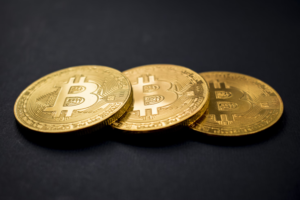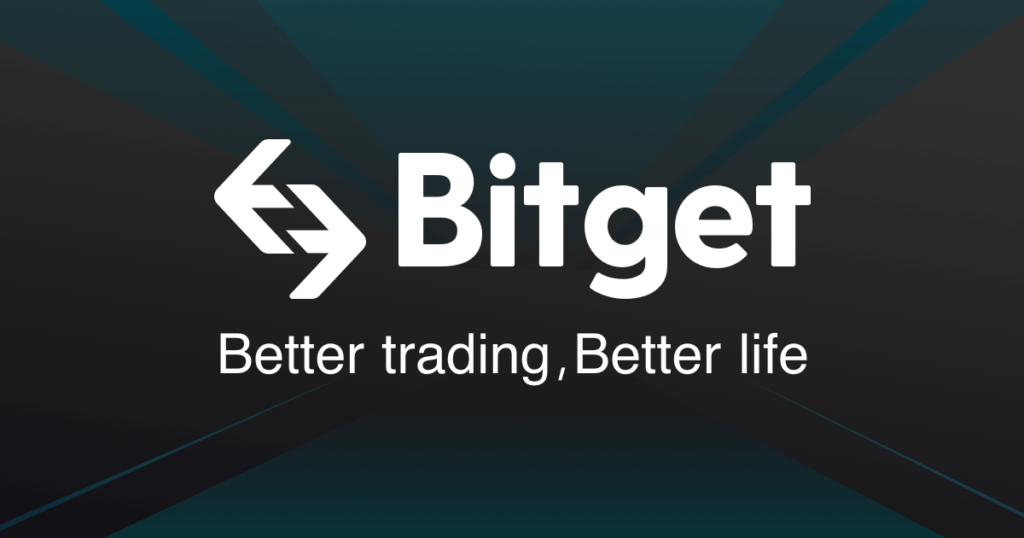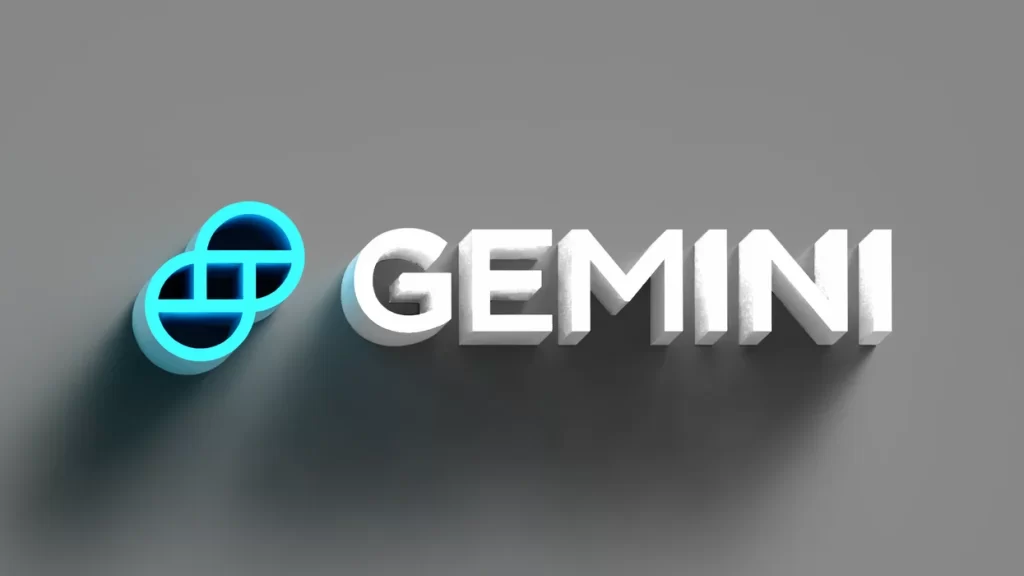Despite a recent decrease in Bitcoin’s price and speculation about the fading hype around Bitcoin NFTs, ordinal inscriptions have continued to dominate the Bitcoin network’s activity in the past week.
On August 21, the developer known as “Leonidas,” responsible for Ordinals, highlighted that the Bitcoin network had processed 530,788 transactions within the last 24 hours.
Astonishingly, 450,785 of these transactions were Ordinals related, comprising a substantial 84.9% of Bitcoin’s total activity.
This defies the narrative claiming Ordinals’ demise.
Supporting this trend, data from Dune Analytics substantiates the phenomenon, recording over 400,000 ordinal inscriptions on August 20.
In contrast, Bitinfocharts records a daily Bitcoin transaction count around 556,000, implying that more than 75% of network activity on August 20 stemmed from Ordinals.
Industry researcher Eric Wall further corroborated this by noting that during the week, an impressive 54% of Bitcoin’s transactions were Ordinals.
Dune Analytics indicates that a staggering 25.5 million Ordinal inscriptions have taken place, generating an impressive $53.4 million in fees on the Bitcoin network.
READ MORE: Crypto Influencer Files $16 Million Lawsuit Against Bitget Exchange
These inscriptions are primarily driven by the minting of BRC-20 tokens, with a remarkable 1.9 million of them minted in the previous week.
These recent observations stand in stark contrast to a DappRadar report on August 17.
The report suggested that Ordinals NFT usage and sales volume had experienced a decline since their peak in May.
However, it’s crucial to note that this report tracked NFT sales and trading volume on the Bitcoin network, not the underlying inscription activity that continues to surge.
Bitcoin Ordinals represent nonfungible asset artifacts designed to facilitate data inscription onto Satoshis, the smallest Bitcoin units.
Introduced in January, the subsequent months witnessed a surge in inscription popularity as thousands of Ordinals were minted on the Bitcoin network.
This surge led to network congestion and spikes in transaction fees, culminating in peak congestion during April and May.
Other Stories:
US Tech Giant Fires New Warning About ChatGPT
Crypto Industry Adapts to Bear Market
Bored Ape Yacht Club’s Yuga Labs to Scale Back OpenSea Support
Bitget, a cryptocurrency derivatives exchange headquartered in Seychelles, is making changes to its Know Your Customer (KYC) requirements in alignment with global regulatory standards.
The modifications to the KYC procedures are aimed at safeguarding user rights, fostering a secure environment for cryptocurrency trading, and adhering to regulatory suggestions provided by international watchdogs.
Commencing from September 2023, Bitget will implement adjustments to its KYC verification prerequisites.
New users registering on the platform will be mandated to complete level 1 KYC verification to unlock a range of Bitget services, encompassing cryptocurrency deposits and trading.
For users who register before September 1, the deadline for completing KYC verification is set for October 1, 2023.
During the interim period, users who haven’t finished the verification process by the end of September will still have the liberty to execute deposits, withdrawals, and trades.
Nevertheless, as of October, users who have not undergone the KYC verification procedure will experience restrictions.
They will only be able to perform withdrawals, cancel orders, redeem subscriptions, and close positions.
The ability to initiate new trading orders will be curtailed for these users.
Bitget is committed to following stringent KYC protocols to authenticate the identities of its customers for the purpose of assessing risks.
This approach aligns with the practices of mainstream financial institutions and regulated entities.
In the spectrum of cryptocurrency exchanges, Bitget is not alone in its adoption of updated KYC policies. KuCoin, for instance, implemented comparable requirements in July 2023.
READ MORE: US Tech Giant Fires New Warning About ChatGPT
The platform now mandates identity checks for all new users to comply with global Anti-Money Laundering regulations.
Failure to complete the KYC checks renders users ineligible for KuCoin’s array of services and products, which involves providing personal information, ID details, submitting ID photos, and undergoing a facial recognition process.
OKX, another prominent player, is also enforcing a KYC protocol for identity verification. Users on OKX are granted a deadline in September similar to Bitget.
This process mirrors the three-step approach seen on KuCoin. Users who neglect the verification process on OKX will lose access to services starting from September 21.
In summary, Seychelles-based cryptocurrency derivatives exchange Bitget is proactively upgrading its KYC requirements to comply with global regulations.
These changes are devised to ensure user protection, cultivate a secure trading environment, and adhere to regulatory standards.
Other Stories:
Bored Ape Yacht Club’s Yuga Labs to Scale Back OpenSea Support
Crypto Influencer Files $16 Million Lawsuit Against Bitget Exchange
The Worldcoin cryptocurrency initiative has encountered a fresh hurdle in its development as the Kenyan government establishes a 15-member parliamentary committee to delve into the contentious undertaking.
According to a local publication, the Kenyan government has set up a committee of 15 members, led by Gabriel Tongoyo, the Member of Parliament for Narok West, to thoroughly examine the disputed cryptocurrency project.
The parliamentary committee is tasked with conducting an investigation into the project over a span of 42 days and subsequently presenting its findings to the House committee.
Despite reaching out to MP Gabriel Tongoyo for insights into his reservations and objections against Worldcoin, Cointelegraph did not receive a response before the publication deadline.
This parliamentary scrutiny arrives approximately three weeks after Kenya suspended the operations of Worldcoin.
The suspension was enacted due to the project’s failure to comply with governmental directives to cease the practice of scanning users’ irises.
Interior Cabinet Secretary Kithure Kindiki, a pivotal figure in the suspension of Worldcoin’s activities, expressed the government’s apprehensions to the House committee.
READ MORE: Bored Ape Yacht Club’s Yuga Labs to Scale Back OpenSea Support
He emphasized that the government is deeply concerned about Worldcoin’s activities, which involve the registration of citizens and the collection of iris data. Kindiki asserts that these activities present significant security risks.
In addition to the parliamentary committee’s involvement, various regulatory bodies in Kenya have overwhelmingly rejected the Worldcoin project.
A court ruling has also led to the suspension of the project’s operations. This legal action was initiated following a lawsuit filed by the office of the data commissioner.
The court’s decision mandates the preservation of data collected by Worldcoin between April of the previous year and August 2023, pending the conclusion of the ongoing legal proceedings.
Worldcoin, a cryptocurrency endeavor centered around digital identification, introduces its native digital coin, WLD coin, which is acquired through iris scanning.
Although the project garnered nearly 2 million participants during its trial phase, its launch to the public across multiple countries brought to light several reports detailing its controversial practices.
As a result, governments in countries such as Nigeria, the United Kingdom, Argentina, Germany, and Kenya have launched investigations into the project.
Other Stories:
US Tech Giant Fires New Warning About ChatGPT
Crypto Influencer Files $16 Million Lawsuit Against Bitget Exchange
The Federal Republic of Somalia has taken a stance in line with several other nations by prohibiting the cryptocurrency-friendly messaging app Telegram, alongside the TikTok social media platform and the online betting site 1XBet.
The country’s Ministry of Communications and Technology (MOCT) officially declared on August 20 its decision to shut down these platforms.
Jama Hassan Khalif, the MOCT Minister, chaired a significant meeting involving the National Communications Agency and key Somali telecommunications companies to address telecommunications and internet security issues related to social media.
Khalif emphasized that the government of Somalia aims to safeguard the cultural fabric of Somali society as the pervasive influence of telecommunications and internet devices has begun to adversely impact lifestyles and promote detrimental habits.
The MOCT statement elaborated on the decision, stating, “It was considered important to shut down TikTok, Telegram and 1XBet gambling equipment, which had an impact on Somali youth, causing some of them to die.”
The move is also seen as a step to curb the proliferation of inappropriate content and propaganda.
Khalif’s assertion that these platforms are exploited by “terrorists and immoral groups” to disseminate disturbing visuals and misinformation to the public underscores the urgency of the decision.
He further directed Telegram and other applications to suspend their operations within Somalia by August 24. Non-compliance with this directive, he warned, would lead to legal consequences.
READ MORE: US Tech Giant Fires New Warning About ChatGPT
The ban, announced by the Ministry of Telecommunications and Technology, is designed to counter and prevent indecent activities, harmful contents, and the spread of extremist propaganda.
The motivation behind this move remains focused on protecting the well-being of the nation’s youth and preserving cultural values.
Although the ramifications of Somalia’s ban on platforms like Telegram for its cryptocurrency adoption remain unclear, the country’s stance does not appear to directly affect the use of cryptocurrencies like Bitcoin (BTC), which is not prohibited within Somalia.
However, the debate over the association of cryptocurrencies with potential terrorism financing risks remains ongoing in global jurisdictions.
This development comes on the heels of Iraq’s decision to lift the ban on Telegram in mid-August after initially imposing it due to concerns about personal data security.
Similarly, in Brazil, Telegram faced a temporary suspension in April due to investigations into the platform’s use by neo-Nazi groups for inciting violent actions.
The platform faced substantial fines for non-cooperation in the investigation of such activities.
Other Stories:
Crypto Industry Adapts to Bear Market
Bored Ape Yacht Club’s Yuga Labs to Scale Back OpenSea Support
Crypto Influencer Files $16 Million Lawsuit Against Bitget Exchange
Customers using Binance, a prominent cryptocurrency exchange, are reportedly encountering problems with fiat withdrawals in Europe due to complications related to Single Euro Payments Area (SEPA) transfers.
As of August 20, Binance’s customer support revealed in a now-deleted post on X (formerly Twitter) that the exchange had temporarily suspended euro withdrawals and deposits through SEPA.
Binance cited the discontinuation of support from its payment provider as the reason behind this suspension.
Binance acknowledged the inconvenience caused by this situation and assured users that efforts were underway to resolve the issue promptly.
The incident arose when a Binance user in Europe reported being unable to withdraw a substantial amount of Euros they had purchased on the platform.
The user’s complaint included frustration over not being able to access their funds due to the closure of their Paysafe account.
The user remarked that such actions were more characteristic of untrustworthy exchanges rather than Binance.
This occurrence follows Binance’s earlier announcement to its users that its current euro banking partner, Paysafe Payment Solutions, would no longer support the exchange.
READ MORE: Binance Contemplates Legal Action Against Former Payment Provider
Binance had informed users that they needed to update their banking details and potentially agree to new terms to continue using SEPA services.
However, Binance clarified that the recent customer support message on X had been sent erroneously. The SEPA deposit and withdrawal service would continue until September 25, as initially communicated.
Approaching the September 25 deadline, Binance mentioned that some users might be subject to additional information requests due to routine compliance checks, possibly leading to early account closures.
The exchange assured users that alternative solutions would be in place before the SEPA service’s termination.
This is not the first instance of withdrawal-related difficulties for Binance in Europe. In a similar incident in May, Binance halted Bitcoin withdrawals due to a backlog of pending transactions.
This pause came after the exchange faced its inaugural withdrawal outage during a congested Bitcoin mempool period, which led to numerous transactions being stuck on the blockchain.
Other Stories:
Ripple Labs vs. SEC: Appeals Process Sparks Debate Over Ongoing Legal Case
Two prominent decentralized finance (DeFi) platforms, Exactly and Harbor, fell victim to separate attacks on August 18, as reported by blockchain security firms DeDotFi and PeckShield.
These breaches, although unrelated, resulted in substantial losses.
Exactly Protocol suffered a breach that led to the theft of 4,323.6 Ether, valued at approximately $7.3 million at the time.
The attackers effectively exploited a vulnerability in the DebtManager periphery contract by submitting a malicious market contract address.
This bypassed security checks and allowed the malicious deposit function to be executed, resulting in the theft of user-deposited assets.
While initial reports indicated a larger sum of over 7,160 ETH (worth nearly $12 million) had been stolen, the protocol later revised the figure downwards.
The stolen funds were subsequently routed through the Across Protocol and Optimism Bridge, transferring 1,490 ETH and 2,832.92 ETH to the Ethereum network.
Harbor, another DeFi protocol, also disclosed an attack on the same day.
This breach targeted its interchain stablecoin protocol, leading to the loss of funds stored in the stable-mint, as well as its stOSMO, LUNA, and WMATIC vaults.
READ MORE: Former US President Donald Trump’s Ethereum Wallet Surges to $2.8 Million
The exact amount of crypto assets stolen remains unclear. Harbor is actively working to track the flow of funds and ascertain the full extent of the losses incurred.
These incidents are the latest in a series of security breaches that have plagued the DeFi ecosystem in recent weeks.
Notably, on July 30, vulnerabilities in three versions of the Vyper programming language resulted in hackers stealing over $61 million from stablecoin pools on Curve Finance.
Additionally, other protocols such as Earn.Finance suffered losses of at least $287,000 in stolen ETH, while Zunami Protocol faced an exploit that led to $2.1 million in losses.
In response to the breaches, Exactly Protocol has taken measures to mitigate the attack’s impact.
The protocol has filed a police report and has even attempted to communicate with the attackers in a bid to retrieve the stolen assets.
Harbor, on the other hand, is concentrating its efforts on locating the stolen funds and calculating the total losses.
The recent surge in security incidents emphasizes the vulnerability of DeFi platforms to exploitation.
As the DeFi landscape continues to evolve, it remains crucial for these platforms to continuously enhance their security measures to safeguard user assets and maintain investor trust.
Other Stories:
Tether Discontinues Bitcoin Omni Layer Version Due to Waning Interest
Bitcoin Hovers Near 2-Month Lows Amidst Extensive Liquidations and Market Uncertainty
Shiba Inu’s Shibarium Network Restarts Block Production After Temporary Pause
The United States Securities and Exchange Commission (SEC) is reportedly poised to greenlight a series of applications for Ether futures exchange-traded funds (ETFs) concurrently, sources familiar with the matter have informed The Wall Street Journal.
Numerous investment firms have inundated the regulator with applications since July, encompassing proposals that combine futures strategies for both Bitcoin (BTC) and Ether (ETH).
Unlike in 2021, when similar applications were met with directives to withdraw, the SEC has refrained from instructing firms to retract their current submissions.
This divergence suggests that the regulatory body is unlikely to impede the imminent launch of these funds, as insiders have shared with WSJ.
A trove of at least 16 applications for Ether or Bitcoin-Ether futures ETFs is currently awaiting regulatory clearance.
Ether, the indigenous token of the Ethereum blockchain, serves as the medium for peer-to-peer transactions within the decentralized network.
A cryptocurrency futures ETF shadows the progress of cryptocurrency futures contracts.
For instance, rather than directly investing in Bitcoin or Ethereum, a cryptocurrency futures ETF invests in futures contracts pegged to the valuation of these digital assets.
Recent developments reveal an ongoing scramble to obtain approval for crypto futures.
Valkyrie, an asset management entity, is emblematic of this trend, having recently filed for an Ether futures ETF and a preexisting application integrating a Bitcoin-Ether futures approach.
As the frontrunner in this competitive endeavor, Valkyrie stands poised to introduce its BTC-ETH ETF to the market as early as October.
READ MORE:Tether Discontinues Bitcoin Omni Layer Version Due to Waning Interest
Within the ETF sector, pioneering status carries significant weight.
Data from Morningstar, as cited by WSJ, accentuates this point, illustrating that the inaugural futures Bitcoin ETF, sanctioned by ProShares in October 2021, has amassed $1 billion in assets under management.
In a similar vein, Valkyrie’s analogous product, launched shortly thereafter, has garnered nearly $28 million in assets under management.
Meanwhile, the crypto industry remains on tenterhooks, awaiting the SEC’s verdict on a prospective spot Bitcoin ETF in the United States.
Notable industry giants like Fidelity and BlackRock are among the hopefuls.
The application timeline stipulates that the SEC has until January to render a final decision that will reverberate across the financial landscape.
Other Stories:
Former US President Donald Trump’s Ethereum Wallet Surges to $2.8 Million
Shiba Inu’s Shibarium Network Restarts Block Production After Temporary Pause
Bitcoin Hovers Near 2-Month Lows Amidst Extensive Liquidations and Market Uncertainty
Elon Musk, previously associated with Twitter and now chairman and chief technology officer of X, has expressed admiration for Vivek Ramaswamy, an emerging figure in the realm of United States Republican presidential candidates.
In response to a segment of Vivek Ramaswamy’s interview on the Tucker Carlson’s Tucker on Twitter podcast, Musk took to Twitter to commend him, highlighting that Ramaswamy holds the distinction of being the youngest-ever Republican presidential candidate.
Musk also emphasized Ramaswamy’s potential, labeling him as a highly promising candidate.
Ramaswamy is renowned for his forthright viewpoints on digital finance and cryptocurrencies. He has been actively advocating for a more robust crypto ecosystem within the United States.
This commitment was evident at the Bitcoin 2023 conference held in Miami, where he announced that his presidential campaign would be open to receiving contributions in Bitcoin.
This move marked Ramaswamy as the second contender in the 2024 U.S. election race to embrace BTC donations.
During the conference, Ramaswamy unveiled a QR code, directing participants to a donation portal that offered various channels for contributions.
READ MORE: Bitcoin Hovers Near 2-Month Lows Amidst Extensive Liquidations and Market Uncertainty
Supporters who made donations within the stipulated limit of $6,600 were offered an exclusive nonfungible token, a distinctive feature of his campaign strategy.
Ramaswamy’s approach echoes that of Robert F. Kennedy Jr., who became the pioneer U.S. presidential aspirant to embrace Bitcoin donations, underscoring the escalating importance of cryptocurrencies in shaping the future financial landscape.
The growing popularity of Ramaswamy has led to his association with fellow Republican Ron DeSantis, the Bitcoin-friendly Governor of Florida, creating an environment of shared interests and goals.
However, Ramaswamy’s foray into the realm of politics is not without its challenges.
Presently, he confronts two legal cases brought forward by former employees of Strive Asset Management, a company he co-founded.
These former employees allege that they were coerced into violating securities regulations during their tenure at the firm.
In summation, the acknowledgment from influential figures like Elon Musk and Ramaswamy’s bold stance on cryptocurrency contributions underscore the impact of this emerging candidate on the evolving political and financial landscape.
Yet, his journey into politics is accompanied by legal hurdles, which add a layer of complexity to his political trajectory.
Other Stories:
Tether Discontinues Bitcoin Omni Layer Version Due to Waning Interest
Former US President Donald Trump’s Ethereum Wallet Surges to $2.8 Million
Shiba Inu’s Shibarium Network Restarts Block Production After Temporary Pause
Cryptocurrency exchange Gemini has taken a step in its bid to counter the lawsuit brought against it by the United States Securities and Exchange Commission (SEC), by submitting a reply brief.
The lawsuit revolves around allegations that Gemini Earn, a service enabling customers to lend cryptocurrencies such as Bitcoin to Genesis, violated securities regulations by offering unregistered securities.
Gemini’s recent court documents, dated August 18 and filed in the U.S. District Court for the Southern District of New York, strongly contest the SEC’s claims.
The exchange asserts that the SEC has failed to make a clear and solid case, indicating that “Section 5 of the securities act is not hard to understand.”
Gemini contends that the SEC’s inability to precisely define the security in question underscores the fragility of its position.
The exchange further posits that the court should not wade through the convoluted analyses presented by the SEC.
Instead, it suggests that the agency should ask direct and uncomplicated questions to ascertain whether the alleged breach qualifies as a security.
Key queries include the timing of the supposed security sale, the identity of the buyer and seller, as well as the offered or charged price.
Gemini argues that the SEC’s responsibility lies in pinpointing the unregistered security before identifying the sale or offer associated with it.
According to Gemini, the SEC has failed to fulfill this basic requirement.
The exchange’s filing asserts that the SEC’s opposition “avoids the question before the court.”
READ MORE: Tether Discontinues Bitcoin Omni Layer Version Due to Waning Interest
In earlier court filings on May 27, Gemini contended that transactions conducted within the Gemini Earn program were akin to loans.
The exchange requested the SEC to dismiss the complaint.
In a statement made on August 19, Jack Baugham, a founding partner of JFB Legal representing Gemini, highlighted the changing stance of the SEC as the lawsuit progresses.
Baugham expressed that the SEC’s inability to determine the nature of the security being referred to muddles their argument.
The regulator’s contradictory positions, such as labeling the Loan Agreement a security while simultaneously claiming the entire Gemini Earn program to be a security, are deemed absurd by Baugham.
In summary, Gemini’s reply brief contests the SEC’s lawsuit, emphasizing that the agency has not clearly established its case regarding the alleged breach of securities regulations by the Gemini Earn service.
The exchange argues that the SEC’s confusion about the nature of the security and its inconsistent claims undermine the legitimacy of the lawsuit.
Other Stories:
Bitcoin Hovers Near 2-Month Lows Amidst Extensive Liquidations and Market Uncertainty
Shiba Inu’s Shibarium Network Restarts Block Production After Temporary Pause
Former US President Donald Trump’s Ethereum Wallet Surges to $2.8 Million
A recent CoinGecko report, published on August 17, has shed light on the substantial global disparities in household electricity expenses associated with individual Bitcoin (BTC) mining.
The report highlighted a remarkable contrast between Italy and Lebanon, where the cost of producing a single Bitcoin differs significantly.
According to the findings, mining one Bitcoin in Italy comes at a staggering cost of $208,560.
This is in stark contrast to Lebanon, where the expense is approximately 783 times lower, allowing miners there to generate a Bitcoin for just $266.
The study underscored that only 65 countries present a profitable landscape for solo Bitcoin miners, primarily based on household electricity costs.
Within this group, Asia accounts for 34 countries, while Europe contributes a mere five.
However, miners operating solo face a challenge as the global average for household electricity costs sits at $46,291.24 for mining one Bitcoin.
This figure is notably 35% higher than the average daily price of one Bitcoin in July 2023, which was $30,090.08.
The report identified Italy as the most expensive country for household Bitcoin mining, with a cost per Bitcoin of $208,560.
Austria followed at $184,352, and Belgium at $172,382.
READ MORE: Tether Discontinues Bitcoin Omni Layer Version Due to Waning Interest
Conversely, Lebanon’s affordability shines through in its household electricity rates, allowing for a strikingly low cost of $266 to mine one Bitcoin.
This dramatic variance underlines the immense difference in operational costs between countries.
Iran comes next on the list, with a production cost of $532 per Bitcoin.
Despite legalizing Bitcoin mining in 2019, the country has intermittently prohibited mining due to concerns over energy grid strain during winter.
Binance CEO Changpeng “CZ” Zhao engaged with the report’s data on social media, questioning why individuals in countries with lower electricity costs wouldn’t engage in Bitcoin mining.
However, he acknowledged the potential complexities involved and suggested that feasibility and logistics might not have been fully considered in the report.
CZ also pointed out that some of these low-cost electricity countries experience shortages, often necessitating power reductions in heavy industries during peak hours or the summer months.
This context reveals that while electricity costs are a significant factor, other variables also play into the viability of Bitcoin mining operations across different nations.
Other Stories:
Bitcoin Hovers Near 2-Month Lows Amidst Extensive Liquidations and Market Uncertainty
Shiba Inu’s Shibarium Network Restarts Block Production After Temporary Pause
Former US President Donald Trump’s Ethereum Wallet Surges to $2.8 Million












